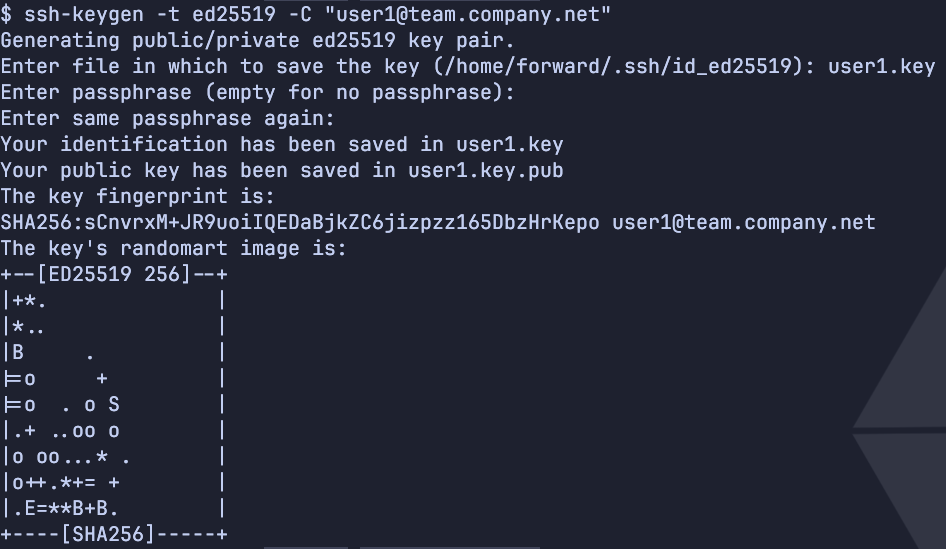Bastion Host Configuration for Cluster Authorization
This guide describes configuring a bastion host and applying firewall rules to secure SSH access to Forward Cluster version 15 or later.
Prerequisites
- A dedicated Linux-based virtual machine to serve as the bastion host (this guide uses Oracle Linux v9).
- The bastion host should be configured with your organization’s preferred authentication method (e.g., LDAP, TACACS).
- Ensure the bastion host and all cluster nodes are configured to use the same NTP server for consistent time synchronization.
Step 1: Configure Cluster Nodes with Restricted Firewall Rules
Each node should use nftables to restrict inbound traffic to only the necessary ports and allow access only from the
bastion host and other cluster nodes.
1. Edit /etc/nftables.conf
To restrict open ports, replace its contents with the following:
include "/etc/nftables/ssh.nft"
table inet filter {
chain input {
type filter hook input priority filter; policy accept;
ct state established,related accept # Allow outgoing traffic
icmp type echo-request accept # Allow ping
jump allow_ssh
# Allow HTTP/HTTPS
tcp dport { 80, 443 } ct state new accept
# Allow K0S components
tcp dport { 2380, 4789, 6443, 8132, 9443, 10250 } ct state new accept
udp dport 4789 accept
iifname "eth0" drop # Drop other inbound traffic on eth0
}
}
2. Create the SSH Access Rule File
Create /etc/nftables/ssh.nft with the allowed IPs:
table inet filter {
set allowed_ips {
type ipv4_addr
# flags interval # Uncomment for CIDR ranges; comment for individual IPs
elements = { BASTION_IP, CLUSTER_NODE_1, CLUSTER_NODE_2, CLUSTER_NODE_3 }
}
chain allow_ssh {
ip saddr @allowed_ips tcp dport ssh accept
}
}
Replace placeholders (BASTION_IP, CLUSTER_NODE_1) with actual IPs, including the IP of the node you are configuring, as in the following example.
table inet filter {
set allowed_ips {
type ipv4_addr
# flags interval # Uncomment for CIDR ranges; comment for individual IPs
elements = { 192.168.1.3, 192.168.4.7, 192.168.4.8, 192.168.4.9 }
}
chain allow_ssh {
ip saddr @allowed_ips tcp dport ssh accept
}
}
3. Reload the nftables Ruleset
Reloading the ruleset will block SSH from any IP not listed in allowed_ips.
Run the following commands to reload the nftables ruleset.
sudo nft flush ruleset
sudo systemctl restart nftables.service
SSH Authentication to Cluster Nodes
Option 1: Password-Based Authentication
By default, cluster nodes allow password-based SSH login.
Username: forward
Password: changeme
It is recommended that the forward user change the default password after logging in. Use your actual password when
configuring the bastion-host-based management flow. Using this option, a user would have to provide credentials when
logging into the nodes of the Forward Cluster from the Bastion host.
Option 2: Key-Based Authentication
The Forward Cluster supports key-based authentication, allowing users to log in using a secure key pair instead of a password. This guide uses an ED25519 key as an example.
1. Generate an SSH Key on the Bastion Host
Log in to the bastion host and run the following command to generate a new key pair:
ssh-keygen -t ed25519 -C "user1@team.company.net"
When prompted, specify a custom file name (e.g., user1.key) or press Enter to use the default. This creates a
public/private key pair named user1.key and user1.key.pub. For an extra layer of security, you may want to use a
passphrase to protect your private keys on the bastion host.

2. Copy the Key to Each Cluster Node
Install the public key on each node using:
ssh-copy-id -i user1.key forward@<node-ip>
Repeat this command for each node in the cluster.
3. Connect Using the SSH Key
With the key installed, use the following command to log in.
ssh forward@<node-ip>
Revoke a Key
Remove the corresponding entry from the ~/.ssh/authorized_keys to revoke access. Each entry appears as a single line
that ends with the comment specified when creating the key (-C flag).
For example:
ssh-ed25519 AAAAC3NzaC1lZDI1NTE5AAAAIF2kV... user1@team.company.net
Do not remove the inter-cluster-key, as it is required for internal cluster operations.
Optional: Limit Concurrent SSH Sessions
For additional security, you can restrict the number of concurrent SSH sessions per user by editing MaxSessions in
/etc/ssh/sshd_config.
For example, MaxSessions 1 limits each user to a single active SSH session.